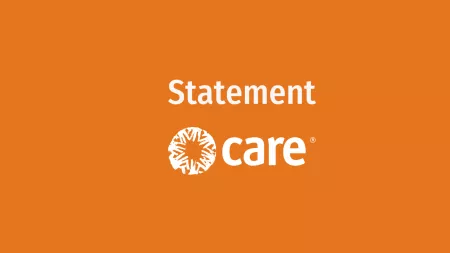CARE International's statement following the Summit of the Future, Interactive Dialogue 4: The future starts now: enhancing the global system for current and future generations.
CARE International has decades of experience working in humanitarian and development contexts around the world, and we put gender equality and the empowerment of women and girls at the centre of our work.
Whilst we welcome States’ reaffirmation of gender equality and Women Peace and Security commitments in the Pact for the Future, fundamental change is needed to counter the surge in anti-gender and anti-rights movements the world over.
Women and girls are facing a global pandemic of gender-based violence. They are hit hardest by the impacts of conflict, displacement, hunger, and climate crises. And they face increasing challenges to their right to sexual and reproductive health.
If the status quo prevails, it will take over 130 years to lift all women and girls out of poverty.
This glacial pace of change will mean more generations of girls don’t finish school, many will miss out on inclusion in the digital economy, and others risk being locked out of decent job opportunities in the green transition.
The fact that no country has achieved gender equality, means that every government in this room has work to do to speed up the closure of your gender gaps.
If we are to realise the gender just vision set out in the Pact for the Future, States need to urgently lay three foundation stones:
- Accelerate women’s ability to lead – at all levels of decision-making – from the household, right up to Heads of State. This will require you to build economies and societies that centre the care and wellbeing of all people and the planet. Only this kind of structural change will allow women and girls to make decisions about their own lives and have the opportunity to reach their full potential.
- Adopt robust accountability mechanisms and use sex, age and disability disaggregated data to inform policy and budget decisions so progress can be measured, and gender gaps closed. Accountability to your national constituents and to each other is critical to realise the promise of the SDGs; and
- Prioiritise locally led approaches and invest in local leadership, particularly by women-led and women’s rights organisations. They are your primary agents of change who can deliver the most innovative and effective solutions.
